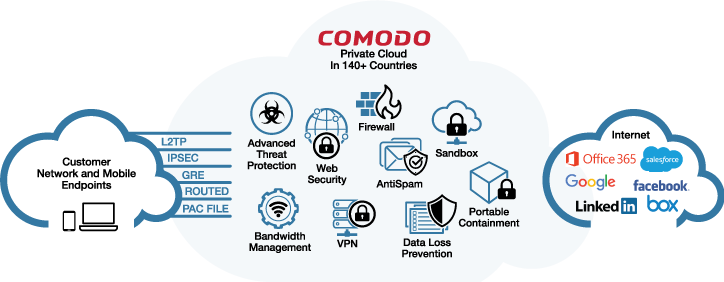What is an Endpoint Security Solution?
An Endpoint Security Solution provides a centralized approach to protect all endpoints connected to the enterprise network from malware and threat actors. The term endpoint has evolved to include servers, workstations, laptops, smartphones and other IoT devices. A centralized management approach enables efficient, effective and easier security management.
A typical Endpoint Security Solution includes an antivirus, firewall, and other security components.
The Traditional Endpoint Security Solution Approach
According to Gartner, “Today, most endpoint protection is still based on an increasingly antiquated Default Allow approach, meaning that only applications or executables that are known to be bad are blocked from running. This is easy enough for hackers to overcome by creating new attacks using slight variants of existing malware. These ‘brand new’ unknown variants, not yet on any blacklist are allowed to infect and compromise their target.”
There are tools to easily create unknown variants of known malware. And there are automated tools that can automatically shell out unknown variants that have a slight variation and are hence undetectable when compared with the existing malware database.
Most endpoints employ signature-based detection that function based on comparing the signature of an application or executable against existing definitions in a virus database. This is an antiquated approach as all processes or executables that are not detected as malicious are allowed unfettered access to system files. A single infected endpoint can allow spread of the malware to other endpoints that are part of the network, and hence lead to total compromise of the enterprise network. Blacklisting-based detection provides limited protection.
Xcitium Advanced Endpoint Protection (AEP)
Xcitium AEP Endpoint Security Solution provides complete security for physical as well as virtual endpoints. It is a lightweight, scalable platform that provides outstanding default deny security with default allow usability.
Features
Xcitium AEP features Automated Containerization, certificate-based Whitelisting, Xcitium Host Firewall, file reputation, Virus Scope behavior analyzer, Xcitium AntiVirus (blacklisting), Host IPS, URL filtering, Valkyrie Static & Dynamic Analyzer, jailing protection, and integrated human analysis.
Device Controls
Xcitium AEP offers control of the default profile, find my device features, over-the-air device enrollment, VPN aware policies, data isolation, remote data wipe, enforcement of strong mobile policies, mobile certificates, sneak peak antitheft feature and policy-based management.
Application Security
To ensure the security of applications it includes application inventory, integrated device, application and security coverage, blacklisting of applications, Xcitium mobile apps, remote management, application whitelist store, and BYOD.
Remote Monitoring and Management (RMM)
The RMM feature provides remote access with full device takeover, remote management, and patch management.
An endpoint is considered to be the most vulnerable sector in an enterprise network and hackers relentlessly attack endpoints using various methods (including social engineering) until they breach the device. And once they are within the network, they are able to spread and compromise other devices that are part of the enterprise network.
Effective Endpoint Security Solution
Xcitium AEP features true Default Deny Security with Default Allow Usability which gives every file a definitive verdict of good (benign), bad (malicious), or unknown (to-be-determined) and always allows only the good files to run unfettered on the enterprise network systems.
Xcitium AEP’s Automatic Containment™ contains all unknown executables until they are identified as safe to use.
Xcitium Advanced Endpoint Protection (AEP) is the only effective endpoint security solution that protects enterprise endpoints against known malware, unknown files (zero-day malware), and advanced persistent attacks.
Related Sources:
How to Get Rid of Malware?
What is a Keylogger?
What is a Trojan Virus?
Endpoint Protection


